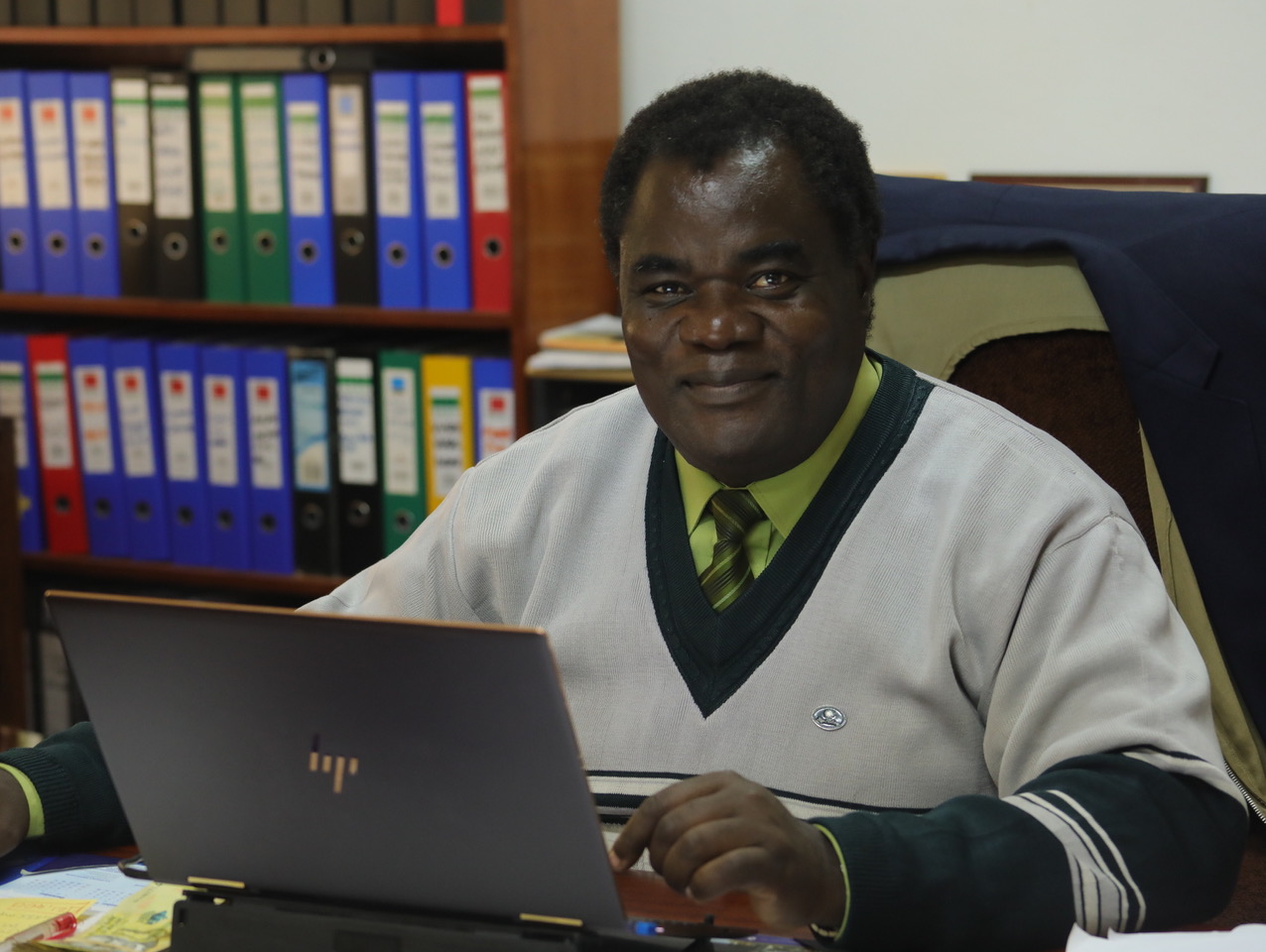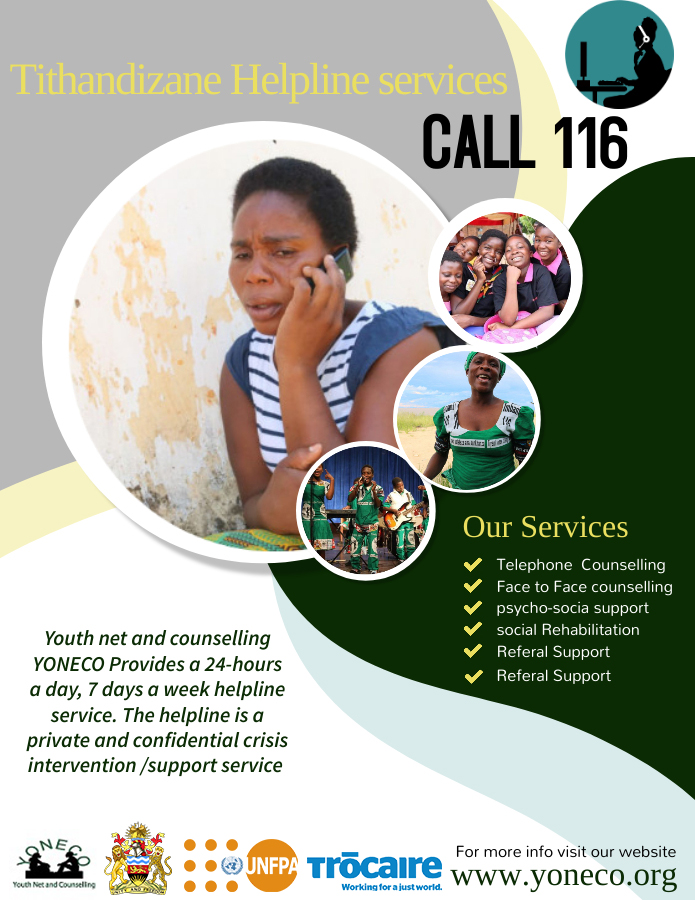Greetings for September 2021.
This comes a few days after a Youth Multisectoral Thematic Meeting that was organized with financial support from Palladium from 26 to 27 August, 2021. We would like to dedicate part of the monthly discussions to that meeting and the observations being made in the country in relation to youth development. In YONECO, we believe that sometimes it is important to call a spade a spade. One critical thing that is emerging in youth development is some wrong assumptions that we are communicating to our young people. We are beginning to create a pool of young people who are believing in more of their rights than responsibilities. Enjoyment of the rights requires people to also be responsible and taking total responsibility of their own actions. There is no way you will enjoy your rights by being irresponsible.
The belief that young people are going to be trusted and yet are being irresponsible is a dream. Now we are seeing reasons why certain things are not happening the right way. The meeting in Mangochi pushed me to recognize that even us as development workers are not doing good, because we are spending more time creating dependency than independence. Malawi 2063 vision has ‘wealth creation’ as a central theme. This theme will not be achieved by just having documents on paper and discussing in hotels. It will come to fruition by ensuring that we have practical and coherent actions with full of responsibilities for all the people. So for example, if wealth creation involves access to loans by young people, have we put the necessary structures and systems to manage these loans? Do we realize that a loan is a burden that if not properly managed can collapse the system? Have we given young people adequate skills and knowledge on management of credit? As a country we really need to reflect on these with an honest mind so that we do not create a society that does not understand the issues and only blame government.
The second issue resonating with us now is the behaviors that is emerging among young people in our communities. In Mzuzu, for example, we had the emergence of Empire Bengende, Sisters Boko Haram and then in Blantyre and Zomba young people in parks doing clandestine activities. Young people are partying like no bodies business. These behaviors are worrying. African Union Road Map to harnessing the demographic dividend through investments in youth made several recommendations and emphasizes the importance of youth engagement and investments.
However, while appreciating the projects like Jobs4Youth in Malawi, one still sees a major challenge for the young people as they grow up. For example, it is a fact that access to secondary education is limited in Malawi and therefore a good number of young people will not proceed to secondary education. A broad question is; “do we have a youth programme as a country?
The question one has is “what is in stock for such young people?’ We are aware that after Malawi School Certificate of Education (MSCE), a few young people will proceed to the university. What will happen to those that do not proceed to the university? Even at the university, after finishing, every year both private we reduce the retirement age, which we have no problem with, but will the people retiring in these position be equivalent to those needing jobs in a particular year? Obviously ‘No’.
Malawi, therefore; is faced with both under employment and unemployment and we need to serious converse how we will prepare our youth to be self-reliant. It quite interesting that self-reliance is part of the vision of MW2063 and by the have been a running vision for YONECO for the last 20 years and we are happy to be associated with this. We therefore need some serious reflection on how we will achieve the MW2063 vision while harnessing the democratic dividend. Its time we need to sit and reflect on serious youth development and not focusing on the projects. Projects should fit into a youth development scheme or programme that is holistic. By the way, we are still waiting for the 2013 policy revision and sorry if we have missed it.
Finally it is no secret that the tourism industry helps in the economic growth of a country. This is especially when there is international tourism taking place which allows for foreign currency to become available and Malawi is no exception. September 27 is World Tourism Day (WTD) which is being commemorated under the theme “Tourism for Inclusive Growth”. It is no secret that the times we are living in now have affected every aspect of life due to COVID-19 and there is need to look for strategies and plans that will facilitate growth. We are aware that Malawi’s tourism industry has not been spared which has also affected the livelihood of many people including youth, women and children. Some of which might directly or indirectly depend on tourism.
As the global community and Malawi will be commemorating WTD and looking for ways to revamp and effectively rebuild the industry there are several things we need to reflect on. If we look at the theme for this year it is talking of “Inclusive Growth” makes thinking what role can the youth take in ensuring that they are a part of this process to bring back the a somewhat lost glory. This takes us to the systems of leadership we have in place in the country. Are we able to mentor and nurture youth who are responsible and trusted to do the right thing? Are the youth given the right opportunity to try their innovative and ideas and get the right support? These are just a few questions out of many which can be explored but the bottom line is if we want to see some positive change coming from the youth they also need to be involved various processes.
Asides from this, the tourism sector also provides a platform for some negative vices to flourish such as child exploitation in various forms. And such types of matters need to be looked into if there is to be positive development. The country is already trying to win the battle against child labor and tourism is one place where children are exploited in various ways such as sexually, child labor and child neglect to mention a few. In light of this we seriously need to look at ways that will provide a healthy environment that allows the youth to take part and at the same time protects the rights of the vulnerable.
We call out to duty bearers and all stakeholders to hold hands and ensure that we have the best interest of the country and its youth and children at heart by protecting but also properly guiding these groups. As the Month begins let us reflect on our goals and ensure that we working hard to achieve what we have planned for in order to lead a purpose driven life.


